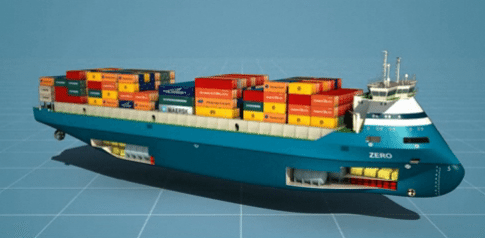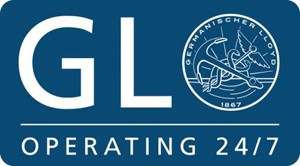India Seeks $1.1 Billion Reparation After MSC Fuel Spill in May
The southern Indian state of Kerala has sued MSC Mediterranean Shipping Co. for the environmental damages caused by a ship capsizing off its coast, according to a court document.


LNG, as a promising fuel alternative, has not been used for container vessels. Daewoo Shipbuilding (DSME) and Germanischer Lloyd (GL) have proved the feasibility of running large container vessels on LNG in a recently completed joint project. At a press conference held during the Kormarine Trade Fair in Busan, both parties announced the progress they have made towards developing LNG-fueled large container vessels. GL has recently finished approval in Principle of a 14,000 TEU LNG-fueled container vessel for DSME.
Mr. Frederick Ebers, GL’s Vice President and Area Manager for North East Asia commenced the press conference stating:
DSME and GL have acknowledged this challenge and agreed in 2010 to jointly start exploring technology options and safety concepts for large LNG-fueled container vessels.”
 Following Mr.Seo from DSME, who demonstrated the design concept of this LNG-fueled container vessel, Dr. Gerd-Michael Wuersig elaborated on the safety concepts involved. Dr. Wuersig is Deputy Head of Environmental Research Department of GL and also a member of IMO Correspondence Group for the development of the Code for Gas as Ship Fuel (IGF-Code).
Following Mr.Seo from DSME, who demonstrated the design concept of this LNG-fueled container vessel, Dr. Gerd-Michael Wuersig elaborated on the safety concepts involved. Dr. Wuersig is Deputy Head of Environmental Research Department of GL and also a member of IMO Correspondence Group for the development of the Code for Gas as Ship Fuel (IGF-Code).
He pointed out that most technical systems have been developed and examined and the major challenge lies in how to apply these technologies, especially the one ensuring safe bunkering procedures. “You have to guarantee there is no gas spill and protection measures against incidents and collisions are sufficient. Relevant solutions are under evaluation and will be available soon,” he said.
In addition, he mentioned there is no restriction for people to hesitate to build these vessels on the basis of the interim guidelines because LNG-fueled vessels built according to the interim guidelines MSC. 285(86) will certainly be allowed to operate even IGF-Code is enforced.
The IMO has agreed to reduce SOX emissions by controlling the Sulphur content in marine fuels from 2015 onwards, and for new vessels operating in ECAs (emission control areas), 80% reduction of NOX emissions versus 2010 level is required starting from 2016. “This will make conventional fuel unattractive. But LNG can be an environmentally and economically sound option due to its high efficiency and lower impact on environment,” said Dr. Wuersig.
Dr. Wuersig is convinced that a new era of LNG vessels is set to come…

GL has been seeking a step ahead in developing relevant rules and pushing forward the use of LNG as ship fuel. Under the assistance of GL, IMO Committee on Maritime Safety developed and adopted “Interim Guidelines on Safety for Natural Gas-Fueled Engine Installations in Ships”. GL has also published guidelines for gas used as ship fuel. Currently, GL is involved in converting a 25,000 dwt product tanker “Bit Viking” into the first GL-classed gas-fueled ship.

Sign up for gCaptain’s newsletter and never miss an update

Subscribe to gCaptain Daily and stay informed with the latest global maritime and offshore news


Stay informed with the latest maritime and offshore news, delivered daily straight to your inbox
Essential news coupled with the finest maritime content sourced from across the globe.
Sign Up